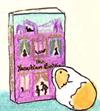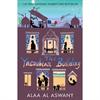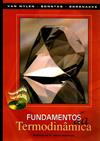
The Yacoubian Building
8 journalers for this copy...
A delightful and authentic pageant of life in modern Cairo, centring on the occupants of a large downtown block, the Yacoubian Building.
As with Rohinton Mistry's Indian classic, A Fine Balance, the world presented here is a harsh one, filled with greed, corruption and cruelty. And yet in contrast with the austerity of Mistry's work, Al Aswany's world is also one driven by sentiment, passion and sexuality. Al Aswany is quite frank about the awful subjugation and sexual exploitation of women in Muslim society, and perceptive of the ploys used by women to defend themselves.
TYB echoes the cosy episodic format of Maupin's Tales of the City, with each chapter skipping to a different occupant of the building, their stories progressing in rotation, occasionally overlapping. In spite of the endless round of bribery and injustice, there is warmth and hope in the human relationships depicted here.
A fascinating read, incidentally very informative about the social development of Africa's largest city during the past 70 years.
As with Rohinton Mistry's Indian classic, A Fine Balance, the world presented here is a harsh one, filled with greed, corruption and cruelty. And yet in contrast with the austerity of Mistry's work, Al Aswany's world is also one driven by sentiment, passion and sexuality. Al Aswany is quite frank about the awful subjugation and sexual exploitation of women in Muslim society, and perceptive of the ploys used by women to defend themselves.
TYB echoes the cosy episodic format of Maupin's Tales of the City, with each chapter skipping to a different occupant of the building, their stories progressing in rotation, occasionally overlapping. In spite of the endless round of bribery and injustice, there is warmth and hope in the human relationships depicted here.
A fascinating read, incidentally very informative about the social development of Africa's largest city during the past 70 years.
Journal Entry 2 by Caterinaanna from Coventry, West Midlands United Kingdom on Sunday, January 27, 2008
miketrollstigen had promised this one to me, so I'd no qualms from taking it from under molekillby's interested gaze. He can have it next though - that way I can count it as a ray and start it sooner than I would otherwise have allowed myself.
Journal Entry 3 by Caterinaanna from Coventry, West Midlands United Kingdom on Wednesday, January 30, 2008
I was intrigued by this having read the thread in BookTalk comparing it with A Fine Balance, one of my top ten from last year. (http://www.bookcrossing.com/forum/6/5034343)
It is indeed more hopeful than the Indian novel, but not entirely. In particular, the response of Taha to the injustices of his life is credible, movingly told and gives an opportunity to understand a type of person often portrayed in harsh terms.
As I'm at home with a cold and have been able to do little but read for a few days (shame!), the poignant tale of Abd Rabbuh and Hatim Rasheed for me had echoes of that of two women in another book (no details in order to avoid spoilers) and demonstrated that some things change little through time, continent and class.
A more general observation, which I may muse on and develop later elsewhere: the tale of each character could have been told separately with the few plot overlaps linking a series of short stories. The aforementioned Maupin, and Alexander McCall Smith's 44 Scotland Street etc. are written in a similar way, but both of these were initially serialised, so the 'soap opera' structure makes sense in that context. Why, as books, do they all end up being more than a sum of their parts? Am I being thick and not noticing a common or contrasting development in each plot line, or echoes in the manner of Perec's deliberately constructed La Vie: Mode d'emploi? Or is it a mere ploy to keep us all hooked?
Going to offer this up as a ring, when I get round to it.
It is indeed more hopeful than the Indian novel, but not entirely. In particular, the response of Taha to the injustices of his life is credible, movingly told and gives an opportunity to understand a type of person often portrayed in harsh terms.
As I'm at home with a cold and have been able to do little but read for a few days (shame!), the poignant tale of Abd Rabbuh and Hatim Rasheed for me had echoes of that of two women in another book (no details in order to avoid spoilers) and demonstrated that some things change little through time, continent and class.
A more general observation, which I may muse on and develop later elsewhere: the tale of each character could have been told separately with the few plot overlaps linking a series of short stories. The aforementioned Maupin, and Alexander McCall Smith's 44 Scotland Street etc. are written in a similar way, but both of these were initially serialised, so the 'soap opera' structure makes sense in that context. Why, as books, do they all end up being more than a sum of their parts? Am I being thick and not noticing a common or contrasting development in each plot line, or echoes in the manner of Perec's deliberately constructed La Vie: Mode d'emploi? Or is it a mere ploy to keep us all hooked?
Going to offer this up as a ring, when I get round to it.
CONTROLLED RELEASE NOTES:
I remember molekillby saying he was interested in this one, so I'm passing it on to him while I see if anyone else is interested in reading it on a ray.
I remember molekillby saying he was interested in this one, so I'm passing it on to him while I see if anyone else is interested in reading it on a ray.
I almost bought this in one of my few forays to Borders. It then appeared at the Cardiff meet only to be ripped from my grasp by CaterinaAnna. I graciously allowed them to take it so that they could read it sooner and make it into a ray. Number two on the list to be read.
I found this book utterly fascinating. I've not read A Fine Balance, but it will now be added to my wishlist, so cannot compare it. However, it did bring back memories of 44 Scotland Street. I know very little about Cairo or the Arab World, but this certainly gives a great insight.
The characters are very real and you can sense their feelings from the narrative. There are glimpses of the sensitivity and passion that runs below the surface in them all. It does give hope at the end, but I did think that on the whole it gave a view of how corruption, greed and a need to manipulate led to bad end. There is visible change within all the characters and in many cases eyes being opened to a version of the truth.
I will await instructions as to what to do with it next, or begin the ray from this point!
The characters are very real and you can sense their feelings from the narrative. There are glimpses of the sensitivity and passion that runs below the surface in them all. It does give hope at the end, but I did think that on the whole it gave a view of how corruption, greed and a need to manipulate led to bad end. There is visible change within all the characters and in many cases eyes being opened to a version of the truth.
I will await instructions as to what to do with it next, or begin the ray from this point!
I suppose there has to be some rules for this bookray. Try and get the book read and sent to the next person on the list within a month. If this will be a problem (due to life's pressures or too many book rings arriving at once) then let me know I'm sure we can find a solution. Let's try to keep this moving at a regular pace.
Participants (please PM me of you wish to join) not the final order:
1. Heaven-Ali (UK)
2. Squirk (UK)
3. London-Shade (UK)
4. okyrhoe (Greece)
5. tauroctonia (Germany) <-------- book is on it's way
Participants (please PM me of you wish to join) not the final order:
1. Heaven-Ali (UK)
2. Squirk (UK)
3. London-Shade (UK)
4. okyrhoe (Greece)
5. tauroctonia (Germany) <-------- book is on it's way
Journal Entry 8 by molekilby at Royal Mail, A Bookring -- Controlled Releases on Tuesday, September 9, 2008
Released 15 yrs ago (9/9/2008 UTC) at Royal Mail, A Bookring -- Controlled Releases
CONTROLLED RELEASE NOTES:
CONTROLLED RELEASE NOTES:
Enjoy
Enjoy
Journal Entry 9 by Heaven-Ali from Birmingham, West Midlands United Kingdom on Wednesday, September 10, 2008
Looking forward to reading this one from my wishlist - thanks for sending Molekilby
Journal Entry 10 by Heaven-Ali from Birmingham, West Midlands United Kingdom on Saturday, September 13, 2008
I find it strange that other readers have likened this to Rohinton's Mistry's A Fine Balance - for I do think AFB is a far better book than this one, and probably a far darker one too. I had wanted to read The Yacoubian Building for ages, and so I am surprised that my reaction to it is not an entirely positive one. It is certainly a fascinating portrayl of Cairo and it's people. The greed, political corruption and the sexual exploitation of women however I found depressing. It is true that there is in the end a glimmer of hope, which came as some relief to me.
I will be sending this on as soon as I get an address.
I will be sending this on as soon as I get an address.
Journal Entry 11 by Heaven-Ali at By mail, A Bookring -- Controlled Releases on Saturday, September 27, 2008
Released 15 yrs ago (9/27/2008 UTC) at By mail, A Bookring -- Controlled Releases
CONTROLLED RELEASE NOTES:
CONTROLLED RELEASE NOTES:
finally got an address and so sending on today - sorry for the delay.
If you have found this book, thank you for taking the time to look it up on the internet. Now please tell us what you thought of the book and what your plans for it are.
finally got an address and so sending on today - sorry for the delay.
If you have found this book, thank you for taking the time to look it up on the internet. Now please tell us what you thought of the book and what your plans for it are.
Journal Entry 12 by squirk from Lambeth, Greater London United Kingdom on Tuesday, September 30, 2008
The book has arrived safely, and I'm longing to read it. Just one book to read before I get stuck into this one.
Thank you!
Thank you!
Journal Entry 13 by squirk from Lambeth, Greater London United Kingdom on Tuesday, November 11, 2008
 I found this to be at times a difficult book to read. The concept of the book, set around the building is a fascinating one and I really enjoyed many of the characters' stories. However, it's not a light-hearted read - there's more of fear and darkness in this book than happiness. The treatment of most (but not all) of the women is weighed heavily in my thoughts as I read, and that's what's stayed with me, along with Taha's story.
I found this to be at times a difficult book to read. The concept of the book, set around the building is a fascinating one and I really enjoyed many of the characters' stories. However, it's not a light-hearted read - there's more of fear and darkness in this book than happiness. The treatment of most (but not all) of the women is weighed heavily in my thoughts as I read, and that's what's stayed with me, along with Taha's story.Many thanks for sharing!
The book will travel on to London-Shade tomorrow.
Journal Entry 14 by squirk at Bookring/Bookray, -- By post or by hand/ in person -- Canada on Friday, November 14, 2008
Released 15 yrs ago (11/12/2008 UTC) at Bookring/Bookray, -- By post or by hand/ in person -- Canada
CONTROLLED RELEASE NOTES:
CONTROLLED RELEASE NOTES:
Sent on to London-Shade today. Hope it reaches you swiftly!
Sent on to London-Shade today. Hope it reaches you swiftly!
arrived safely to head onto Mount Toobie but I'll try to get it read as soon as I can...maybe I'd better get offline and try to finish the 'ray I'm on now!
And LOVE the image Squirk- reminds me of the wonderful guinea pigs I had as pets as a child.
And LOVE the image Squirk- reminds me of the wonderful guinea pigs I had as pets as a child.
 Arrived in Athens today. Thanks molekilby for including me in the reading list, and London-Shade for posting the book to me (& for the extra goodie in the package!).
Arrived in Athens today. Thanks molekilby for including me in the reading list, and London-Shade for posting the book to me (& for the extra goodie in the package!).Browse the book or read an excerpt.
Alaa Al Aswany on the clash of civilizations.
 My family owns an apartment in another Yacoubian building! - in Beirut, Lebanon. Oddly enough, that too has now been 'immortalized' in a work of art.
My family owns an apartment in another Yacoubian building! - in Beirut, Lebanon. Oddly enough, that too has now been 'immortalized' in a work of art. See the original plan at left, and what it's like today. It does look monstrous but when it was built in the early 1970's it was 'state of the art'.
I enjoyed reading The Yacoubian Building but I can't resist analyzing its weaknesses.
The premise of The Yacoubian Building is a credible one. I did not sense that the setting of the story, the placement of a varied selection of individuals in close proximity with one another, all residents in one building is merely fictional license*. The novel is a frank & representative depiction of contemporary Egyptian urban settings, with enough historical and cultural background to explain the finer details of each character’s history and motivations.
Yet there is something missing in this tapestry. In this group portrait, the interwining of the separate threads, although executed in vibrant and expressive strokes, seems to have been drawn at the expense of any depth of focus. There is no clear primary character, nor a central question that is developed to a sufficiently complex degree to make this a novel of substance where the reader can either empathize with a character or be intrigued by a theme that develops as the story progresses.
There’s a lack of originality in terms of authorial persepctive/intention, and the closing scenes of each character’s subplot don’t quite follow from what precedes them, so that ultimately the characters are reduced to moralistic/symbolic entities rather than multidimensional personalities. The characters begin their tales interestingly enough, but ultimately their respective closures appear forced, as if there is only one way their story could end, as if they are conforming to convention (even if the convention is a fictive one).
In the case of Busayna, with regard to her financial concerns, it would seem to me that she would be more likely to take a more practical route, rather than resort to the ‘honorable’ solution (marriage) to her existential dilemma. In terms of character development Busayna’s and Zaki’s pairing doesn’t follow through from their prior behavior or motivations. The union of old (age as well as tradition) with the new/young is schematic rather than realistic, a compromise rather than a progression.
Similarly, Abduh’s and Hatim’s climactic confrontation contextually does not add up, given the way their relationship was presented so far. Hatim’s outbursts seem far beneath his prior composure and generosity, esp. after all that he’s done for Abduh. The decline of Hatim’s behavior is a throwback to East Mediterranean cultural cliches of several decades ago – as with the overall nostalgia of the novel for an Egypt which no longer exists - when popular culture mandated that sexual transgression is a force that ultimately implodes upon itself.
Granted, Al Aswany pushes the limits, within the scope of Egyptian cultural realities, by presenting Abduh & Hatim’s relationship in explicit terms, and by giving that relationship equal time and exposure in relation to the other parallel plots of the novel. Yet the conclusion is color-by-numbers what is expected within the reality of a society still in the process of evolving from feudal/patriarchal behavioral motivations to contemporary standards. I cannot fully comprehend El Aswany’s point, in terms of any possible socio-political commentary there might be in this anachronism.
Several of the socio-political themes in The Yacoubian Building bring to mind the Libyan novel In the Country of Men. Both present a critique of contemporary Arab society where ‘men’ regardless of position and background, no longer operate according to the spirit of patriarchal codes of conduct. All sense of justice, faith, honor, respect seems to have decayed into crass abuse of the system which gives them power. The social confusion over these social values is most evident when the youthful Taha, whose male honor has been violated, seeks redress in an unmanly & dishonorable way. But I venture that it's only the non-Arab reader who sees this, for according to the tribal traditions, both Abduh and Taha have cleansed themselves of dishonor by avenging their respective oppressors. On the other hand, for the women there is no apparent redress, as in the example of Busayna when her honor is violated (the public humiliation at being arrested for 'prostitution') - is her restitution only possible through marriage?
It appears that Al Aswany has nothing new to say regarding the juxtaposition between the strict moral codes women must still (appear to) adhere to, an anachronistic tradition that persists despite a governing system proclaiming itself as modern, democratic, socialist, etc. We observe members of the political system and the religious administration as men who unashamedly foregoes ideological principles when it is convenient to their shortterm aims – the sheikh agreeing to convince Souad to have an abortion when pressured by his longtime financial benefactor, and when men enter politics only for the purpose of securing financial success through extortion and bribery, also when radical religious leaders force a young recruit to a marriage with a "martyr’s" widow, even as they are planning the young man’s own martyrdom, and condemning the bride to a second round of widowhood. Even she, the martyr’s widow that Taha is set up with in the Brotherhood training camp, is regressing into patriarchal/feudal traditions since she believes progress & change is possible only by a return of the old codes of honor.
Does Al Aswany conclude that the situation cannot be rectified when the men resisting it are themselves oppressors of men as well as women? I’m not sure that it can be interpreted with conviction. In this respect, I felt the novel is incomplete, that whatever lasting message the novel intended to convey has been left unsaid.
----------
Imarat Yaqubian عمارة يعقوبيان
The premise of The Yacoubian Building is a credible one. I did not sense that the setting of the story, the placement of a varied selection of individuals in close proximity with one another, all residents in one building is merely fictional license*. The novel is a frank & representative depiction of contemporary Egyptian urban settings, with enough historical and cultural background to explain the finer details of each character’s history and motivations.
Yet there is something missing in this tapestry. In this group portrait, the interwining of the separate threads, although executed in vibrant and expressive strokes, seems to have been drawn at the expense of any depth of focus. There is no clear primary character, nor a central question that is developed to a sufficiently complex degree to make this a novel of substance where the reader can either empathize with a character or be intrigued by a theme that develops as the story progresses.
There’s a lack of originality in terms of authorial persepctive/intention, and the closing scenes of each character’s subplot don’t quite follow from what precedes them, so that ultimately the characters are reduced to moralistic/symbolic entities rather than multidimensional personalities. The characters begin their tales interestingly enough, but ultimately their respective closures appear forced, as if there is only one way their story could end, as if they are conforming to convention (even if the convention is a fictive one).
In the case of Busayna, with regard to her financial concerns, it would seem to me that she would be more likely to take a more practical route, rather than resort to the ‘honorable’ solution (marriage) to her existential dilemma. In terms of character development Busayna’s and Zaki’s pairing doesn’t follow through from their prior behavior or motivations. The union of old (age as well as tradition) with the new/young is schematic rather than realistic, a compromise rather than a progression.
Similarly, Abduh’s and Hatim’s climactic confrontation contextually does not add up, given the way their relationship was presented so far. Hatim’s outbursts seem far beneath his prior composure and generosity, esp. after all that he’s done for Abduh. The decline of Hatim’s behavior is a throwback to East Mediterranean cultural cliches of several decades ago – as with the overall nostalgia of the novel for an Egypt which no longer exists - when popular culture mandated that sexual transgression is a force that ultimately implodes upon itself.
Granted, Al Aswany pushes the limits, within the scope of Egyptian cultural realities, by presenting Abduh & Hatim’s relationship in explicit terms, and by giving that relationship equal time and exposure in relation to the other parallel plots of the novel. Yet the conclusion is color-by-numbers what is expected within the reality of a society still in the process of evolving from feudal/patriarchal behavioral motivations to contemporary standards. I cannot fully comprehend El Aswany’s point, in terms of any possible socio-political commentary there might be in this anachronism.
Several of the socio-political themes in The Yacoubian Building bring to mind the Libyan novel In the Country of Men. Both present a critique of contemporary Arab society where ‘men’ regardless of position and background, no longer operate according to the spirit of patriarchal codes of conduct. All sense of justice, faith, honor, respect seems to have decayed into crass abuse of the system which gives them power. The social confusion over these social values is most evident when the youthful Taha, whose male honor has been violated, seeks redress in an unmanly & dishonorable way. But I venture that it's only the non-Arab reader who sees this, for according to the tribal traditions, both Abduh and Taha have cleansed themselves of dishonor by avenging their respective oppressors. On the other hand, for the women there is no apparent redress, as in the example of Busayna when her honor is violated (the public humiliation at being arrested for 'prostitution') - is her restitution only possible through marriage?
It appears that Al Aswany has nothing new to say regarding the juxtaposition between the strict moral codes women must still (appear to) adhere to, an anachronistic tradition that persists despite a governing system proclaiming itself as modern, democratic, socialist, etc. We observe members of the political system and the religious administration as men who unashamedly foregoes ideological principles when it is convenient to their shortterm aims – the sheikh agreeing to convince Souad to have an abortion when pressured by his longtime financial benefactor, and when men enter politics only for the purpose of securing financial success through extortion and bribery, also when radical religious leaders force a young recruit to a marriage with a "martyr’s" widow, even as they are planning the young man’s own martyrdom, and condemning the bride to a second round of widowhood. Even she, the martyr’s widow that Taha is set up with in the Brotherhood training camp, is regressing into patriarchal/feudal traditions since she believes progress & change is possible only by a return of the old codes of honor.
Does Al Aswany conclude that the situation cannot be rectified when the men resisting it are themselves oppressors of men as well as women? I’m not sure that it can be interpreted with conviction. In this respect, I felt the novel is incomplete, that whatever lasting message the novel intended to convey has been left unsaid.
----------
Imarat Yaqubian عمارة يعقوبيان
Journal Entry 19 by tauroctonia from Berlin (irgendwo/somewhere), Berlin Germany on Tuesday, February 24, 2009
"The Yacoubian Building" safely arrived in Berlin. Thanks for posting the book, okyrhoe!
Journal Entry 20 by tauroctonia from Berlin (irgendwo/somewhere), Berlin Germany on Tuesday, March 31, 2009
"The Yacoubian Building" reminded me of a book by the Syrian-German author Rafik Shami: "The dark side of love", even though Shami's book is centered around family clans and peasant life. The structure and style, however, are similar: a set of characters who are connected in some way and stories of passion, love, tradition, morality, corruption, political and religious struggles. In both books, private life and politics/public life are intertwined. I enjoyed reading "The Yacoubian Building" - it was a captivating book, because I wanted to follow the various paths of its protagonists, but I also share some of okyrhoe's reservations regarding the lack of focus and the incongruities of the characters. Especially Busayna's change of mind did not seem very credible to me, the more since her rethinking was more or less presented within half a page. Nevertheless, though, the book presents an interesting portrait of contemporary life in Egypt's capital.
Who is next in line? The book is ready to travel again!
Who is next in line? The book is ready to travel again!






